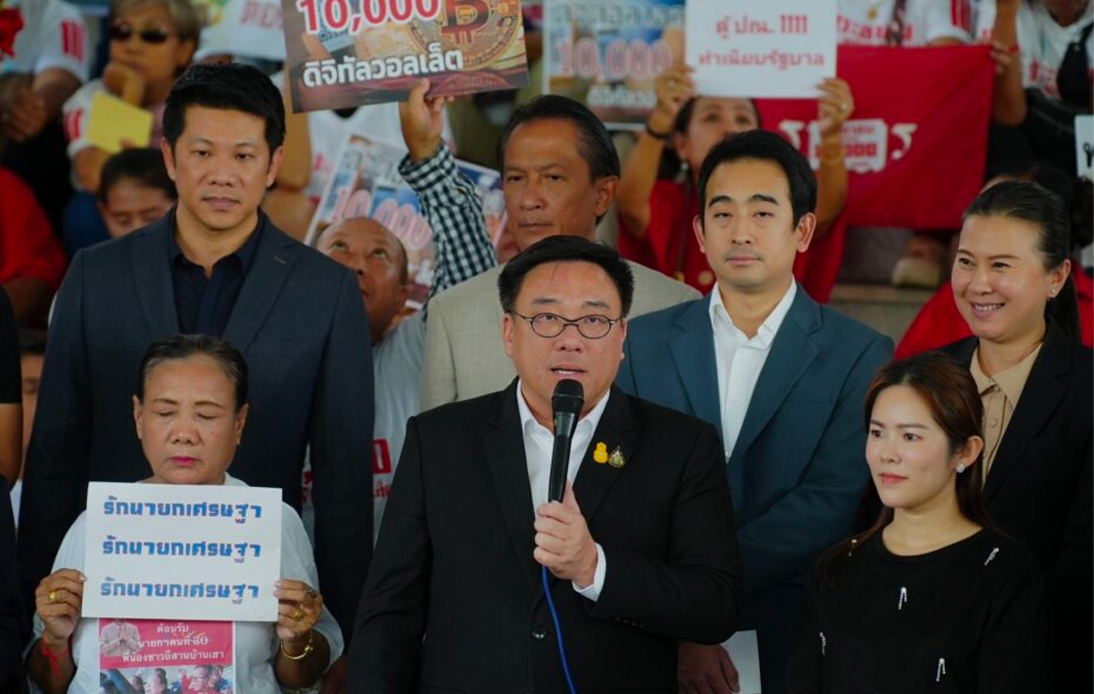
The government’s plan to hand out digital money of 10,000 baht to Thai citizens is not expected to commence on February 1 of the coming year, as initially directed by Prime Minister Srettha Thavisin, Deputy Finance Minister Julapun Amornvivat said on Thursday.
The delay has been necessitated by the need for additional time to establish a robust security framework for the program.
“The prime minister’s instruction was for the handout to start by February 1, 2024. But that date will not be met,” he admitted.
“It’s because we need more time to develop a stable and secure system. We can’t compromise the security of the system just to finish the work on time,” Julapun explained.
Nevertheless, he assured that the system would be fully operational and the handouts could begin during the first quarter of the forthcoming year.
The program entails a digital handout of 10,000 baht to every Thai citizen, 16 years or older, enabling them to make purchases within a 4-kilometer boundary of their official residence over a span of six months.
However, Julapun disclosed on Wednesday that the condition concerning the 4km limit is poised for elimination.
The administration’s objective with this disbursement is to invigorate the Thai economy, aiming for an annual GDP surge of up to 5%.
Critics have cautioned that this initiative could impose a significant economic burden on the nation, demanding an anticipated 560 billion baht from the state budget.
Among the critics of this contentious plan are ex-governors of the Bank of Thailand, former finance ministers, and several economists and scholars.
Julapun, the leader of a governmental subcommittee in charge of overseeing the handout program, mentioned on Thursday that his team had yet to decide on the source of funding and the terms of the handouts.
He informed that the subcommittee is scheduled for another meeting the following Tuesday (October 24) and is set to present its recommendations to the committee overseeing the digital-money handouts, under the leadership of Prime Minister Srettha.
Addressing opinions that the handouts should prioritize vulnerable groups, Julapun clarified that this initiative is designed for economic stimulation, not as a social welfare measure.
“This policy is aimed at stimulating the economy, as the country’s GDP growth has been low. If the government does nothing about it, the GDP will continue to see low growth.
With this policy, we believe the GDP would expand close to 5%,” asserted the deputy finance minister.
Julapun waved off worries about potential irregularities that could taint this initiative, similar to the issues encountered with the rice-pledging scheme during Yingluck Shinawatra’s tenure.
He expressed confidence that the system currently being crafted by this administration would be robust enough to deter any form of corrupt practices.
“We are sure there will be no irregularities. But if any corruption case emerges, the government will certainly take legal action,” he said.




















